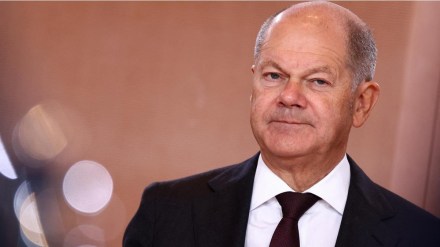Germany’s upcoming election on Feb 23, 2025 for chancellor is expected to be a highly contested race. The country is at a crossroads, dealing with economic uncertainties, global political tensions, and internal debates over critical issues such as immigration and climate change. As the election draws near, four prominent figures have emerged as the main contenders, each offering their vision for Germany’s future.
Here’s closer look at the candidates and what they stand for:
Olaf Scholz: The Incumbent Seeking to Secure a Second Term
Olaf Scholz, 66, has been Germany’s chancellor since December 2021, leading the country through a turbulent period marked by crises such as Russia’s invasion of Ukraine and an energy shortage. Scholz, from the centre-left Social Democratic Party (SPD), has a long history in politics, having served as mayor of Hamburg and Germany’s finance and labor minister before assuming the top office.
Since taking office, Scholz has navigated complex challenges, including securing Germany’s position as a major weapons supplier to Ukraine and managing an energy crisis. However, his three-party coalition has struggled with internal discord, which ultimately led to its collapse in late 2023. This turmoil has cast doubt on his ability to stabilize Germany’s economy. Scholz’s bid for a second term will hinge on his ability to rebuild trust and show that he can effectively manage the country’s pressing issues.
Friedrich Merz: The Conservative Challenger
At 69, Friedrich Merz is the leader of the Christian Democratic Union (CDU), Germany’s largest centre-right party. Since taking over the CDU in 2021, Merz has guided the party towards a more conservative stance, often clashing with Scholz’s coalition.
Merz has made it clear that he aims to address what he sees as uncontrolled immigration, making it one of the central points of his campaign. His political background is long but relatively limited in executive government roles. Merz began his career in the European Parliament in the late 1980s, and after several years of work in the private sector, he returned to politics, aiming to lead the CDU into a more conservative future. If successful, his administration would likely take a hard stance on migration and focus on traditional conservative values.
Robert Habeck: The Green Party’s Climate-Focused Candidate
Habeck, 55, brings a distinct vision to the race as the candidate from the Green Party. Serving as vice chancellor and Germany’s economy and climate minister, he has been deeply involved in the country’s transition toward a more sustainable future. He was co-leader of the Greens until 2022, when Annalena Baerbock took the lead in their bid for chancellor.
As a key advocate for green energy, Habeck has pushed ambitious policies to reduce Germany’s carbon footprint, though his proposals have stirred controversy. One notable plan to phase out fossil-fuel heating systems was met with backlash, particularly from sectors concerned about the cost and practicality of such changes. His candidacy represents a strong commitment to environmental issues, but his political experience, especially in crisis management, has been met with mixed reviews.
Alice Weidel: The Far-Right Contender with a Populist Appeal
Weidel, 46, is making her first run for chancellor as the candidate from the far-right Alternative for Germany (AfD). As co-leader of the AfD since 2022, Weidel has become a prominent figure in Germany’s anti-immigration movement. An economist by training, she first entered politics shortly after the AfD’s founding in 2013 and has quickly risen through the ranks.
Weidel’s platform is focused on a strong stance against immigration, aligning with her party’s populist and nationalist views. Despite her growing popularity, particularly among younger voters and on social media, Weidel faces significant obstacles. Other major political parties have ruled out any potential coalitions with the AfD, leaving Weidel with a narrow path to the chancellorship. Her campaign has gained international attention, not least due to endorsements from figures such as Elon Musk, but her chances remain uncertain.
